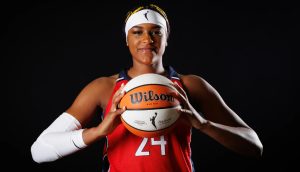Rogers Media-owned Sportsnet Radio continues to prep for its upcoming battle in Vancouver, announcing Scott Rintoul and Andrew Walker this week as hosts for its weekday afternoon shifts.
When it officially takes over the CISL signal from Newcap Inc. in September, it will find itself in a crowded sports radio market that, according to media experts, has little capacity for a new player. With TSN currently operating two stations in Vancouver (TSN 1410 and 1040) and Seattle’s KMTT playing over the border with its ESPN Radio programming, a fragmented audience looks likely.
Sportsnet will have the advantage of owning the Vancouver Canucks’ radio broadcast rights for the next five years and, starting in 2018, the exclusive rights to Toronto Blue Jays games.
David McDonald, VP and director of radio investments with IPG Mediabrands, says such deals “go a long way” but “they’re not a golden ticket… Franchise loyalists will follow, but to keep them there, you have to program around the games.”
David Bray, president of Bray and Partners, likewise says the broadcast deals are an advantage, but points to The Team 1050’s short stint in Toronto as proof that such deals don’t guarantee success.
(CHUM rebranded its 1050 Toronto station in 2001 from a music format to an all-sports station competing with then Rogers-owned The Fan 590. Despite the presence of veteran sports casters Jim Van Horne and Paul Romaniuk as well as the broadcasting rights to the Jays, the station only lasted 15 months before swapping back to oldies.)
Even if Sportsnet grabs listeners, both Bray and McDonald questioned whether or not there was enough advertiser interest to support another sports radio station in Vancouver.
“At best, a sports formatted station has limited market appeal,” McDonald said, noting that the lack of diversity “generally relegates them to the bottom half of rankings against adults. When most advertising targets adults or women, [the sports stations’] potential revenue pool isn’t as large as the other stations in the market.”
Bray said TSN 1040′s share of 4.8% among men 25 to 54 is “good and merchandisable… but cut that in half and it’s not so good.” He said Sportsnet will likely have to generate some “extra enthusiasm” and bring in new listeners.
However, Jason Snider, GM of OMD Vancouver, said the city still sees a “consistent level of interest” in radio, and despite its smaller share of the market, sports radio offers a lot for advertisers in categories such as automotive and financial, which typically target men 35 and up. But, he said, the market isn’t exactly clamouring for another station.
“I don’t know if I’d say overall demand for radio is high, and it certainly isn’t increasing,” he said. “I would be very surprised if the sports radio stations sell out on a monthly basis.”
Snider said his agency sees an opportunity for clients interested in a fresh slate of sports sponsorships that had previously been locked into long-term deals with Bell’s TSN stations.
Craig MacEwan, program director for Sportsnet, knows the fight he’s in for. He previously told MiC that succeeding in Vancouver will “take a lot of hard work and determination,” but that the big-league broadcast rights and the credibility of the Sportsnet name will be a huge help. The network has “an historic relationship” with the Vancouver sports community, he said, since it began televising Canucks games in 1998.
Afternoon host Rintoul, as well as morning hosts James Cybulski, Steve Darling and Mira Laurence (who were announced earlier this month) are also longtime Vancouverites, which McDonald agreed give the station additional credibility. “Familiarity off the top will always help people getting there.”
MacEwan also said the addition of programming with “engaging conversation” and “wide-ranging opinion,” which Vancouver has a strong desire for, would be served up alongside the live sports content.
























